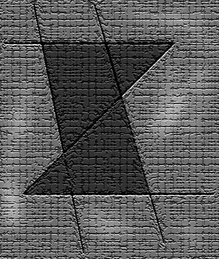I still have my job, but I anticipate for the day or time when I don't. I went through not having a job and attempting to be job free. I still think that is a good insurance policy. Developing your own means of self-sufficiency outside of the job market. When one becomes too dependent upon a job, a person gives up too much autonomy and control over their own destiny.
What is it about a job that we want?
A job should be a means to an end. A stepping stone to something greater. If you stop in a job, more mentally (that is get attached to it) than physically, you will either get screwed because you became dependent upon it or (if your job is stable) you will become bored and feel "is this it?". The best strategy is always look at a job as temporary...
not to look at it as a 'permanent' job...
'stable but flexible'. this concept sums up my approach to living now...i think selflessness, positivity, creativity, resourcefulness and flexibility are traits i most admire in others. and keys to a good life, i believe...
I think humans innately like to work. It's not the work part. I think it's the control or actually lack of control we have over our destiny is what causes dissatisfaction in the workplace.
A job can be one of the most dangerous aspects to a person's feeling of contentment and self-worth. I think of the movie, About Schmidt. In the end, what did he have? It's dangerous too look to a job for identity and/or worth. To look to a job and say, "I did this!", is asking to much of the job. But that's what we want to do as humans: create, build, leave a mark and we mistakenly look to the workplace to provide that.
I think that's one reason why people blog. One reason why I do. Even if I am the only person who reads it, that's okay. The ideas are out there. I feel I have imparted something to the universe.
I read a story many years ago. I can't recall the name. I was in Malaysia at the time and talking to a friend. She was really upset about man's destruction of the environment. I told her about this story I had read, even though I flipped it around and cast the message of the short story in a different light to illustrate a different point that what i think the author intended.
The story started with the last few seconds of the life of the last man left alive on the planet. He was dieing just as his society had died. In the last few breaths of his life, he made a mark...the mark of an "X" on a rock. He wanted to leave a mark of his existence. The story goes from there about how his "X" quickly was weathered away, and how eventually all the buildings and great monuments of man crumbled and succumbed to the earth and the universe by storms and earthquakes and geologic activity. How eventually the mark of man and his society, society's own "X', was erased from the face of the planet, and the universe. It was sad when I read the story.
But here, in Malaysia, my friend was upset about man scrubbing out the environment. That we were removing the "X" from that of other species. So I told her the story to illustrate that nature did prevail and survive in the end.
I don't know if it made her feel any better...the story is kind of depressing, isn't it?
It is interesting to think about though.
I visited the twin towers about four months before 11 september 2001. I walked up to the base of one of the towers and placed my hand on it and looked up and it's imposing and gigantic presence and thought in awe,
"Wow, these things will last forever..."
Four months later they were smoldering ruins.
Time and time again, we are reminded of how temporary things are. And yet we think of our jobs as being...
Permanent...
skip to main |
skip to sidebar

The Cheap Street Times is about trying to live a value based life...

Comments
If you have a comment, please write to:
cheap.street(at)hotmail.com
Thank you
Book List
Links
- BBC
- BOSS
- Debt Free Living
- Defenders of Wildlife
- Free Ideas
- greener side
- Hirshhorn Musuem
- honest taxpayer chronicles
- My Open Wallet: follow the dollars...
- National Museum of the American Indian
- Ran Prieur
- Rancho Costa Nada
- San Francisco Bay Kayak
- Stop Global Warming.com
- Tesla Motors
- The Financial Times
- The Simple Living Network
- The Ultimate Non-Polluting Machine
- The Wall Street Journal
- Why Work
- Your Environmental Footprint
Blog Archive
-
▼
2007
(155)
-
▼
March
(29)
- the human experiment
- intuitive clutter
- the [justin.tv] story goes on...and on....and on...
- JFK
- sdr
- the nth life part n+1
- the unbearable weightiness of ownership
- going...going...gone?
- missing something i never use
- an nth life
- spending money to have fun
- fed watch
- a new idea?
- These are great. A nice balance to those annoying ...
- here to see it...here to feel it...
- formilab
- Boby Dylan sings to people outside of the mainstre...
- pizza my heart
- idle time
- recession proofed
- the possibilities
- gimme a second
- amazing people
- getting comfortable
- a mortgaged house-of-cards
- get a life!
- the flip side to sdb
- in favor of self-destructive behavior
- job impermanence
-
▼
March
(29)